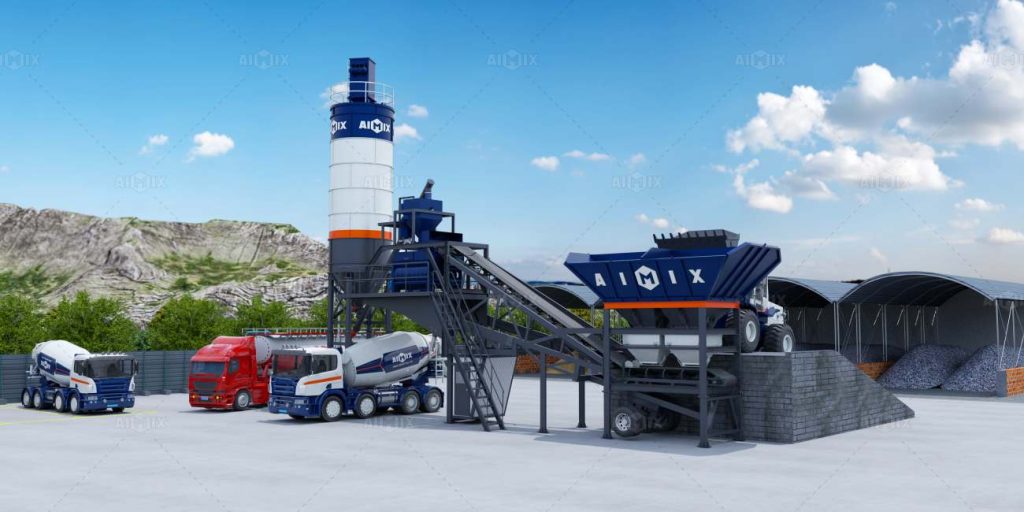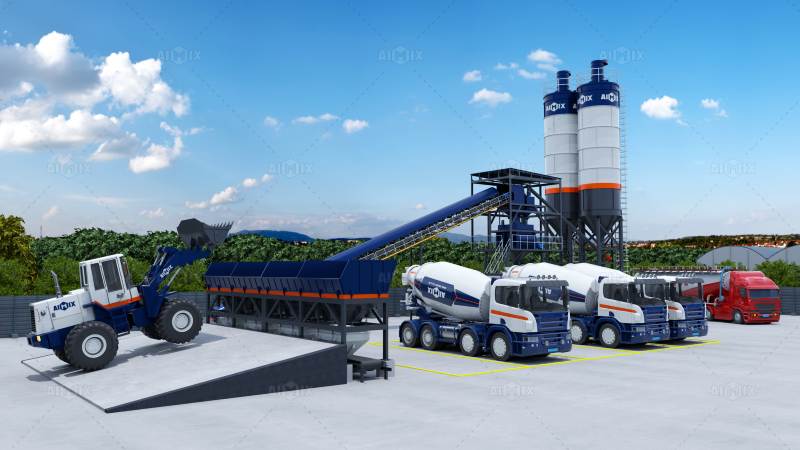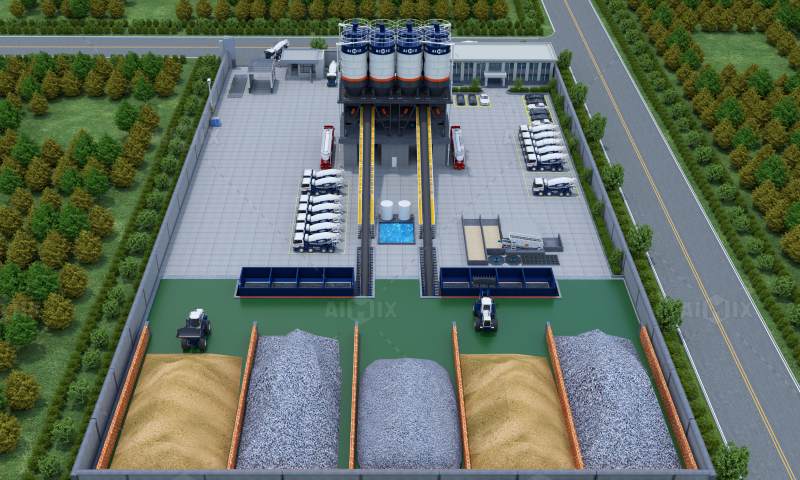Purchasing a concrete batching plant represents a significant investment for any construction operation. Given the complexity and scale of these machines, understanding the warranty options available is crucial to protecting your investment and ensuring long-term operational success. This article explores the key aspects of warranties when buying a concrete batching plant for sale, helping you make an informed decision and safeguard your purchase.

Types of Warranties
Manufacturer’s Warranty: This is the primary warranty offered by the manufacturer, covering defects in materials and workmanship. It typically includes a range of components such as the mixer, control systems, and structural elements. Manufacturer warranties often vary in duration, commonly ranging from one to five years.
Extended Warranty: Extended warranties go beyond the standard manufacturer’s warranty and may be purchased for additional coverage. They can include extended protection for specific parts or systems not covered by the standard warranty, offering peace of mind for longer periods.
Service Warranty: Some manufacturers or dealers offer service warranties, which include scheduled maintenance, repairs, and technical support. This warranty ensures that the ready mix plant for sale receives regular servicing, helping to prevent issues before they become significant problems.
Coverage and Exclusions
Coverage: Understand what is covered under the warranty. Typically, warranties include parts replacement and repairs for defects in materials or workmanship. This can encompass major components like the mixer, conveyor systems, and control panels. Verify if the warranty covers labor costs associated with repairs or replacements.
Exclusions: Be aware of any exclusions in the warranty. Common exclusions include wear and tear from regular use, damage caused by misuse or neglect, and issues arising from modifications or unauthorized repairs. Ensure you understand these limitations to avoid unexpected costs.

Duration of Warranty
Standard Duration: The duration of a manufacturer’s warranty can vary. Standard warranties often last from one to three years, but some manufacturers offer extended periods depending on the plant’s type and specifications. Check the warranty terms to understand the coverage duration and renewal options.
Extended Coverage: If you require additional coverage, inquire about extended warranty options. Extended warranties can provide protection for up to five years or more, offering longer-term security for your investment. Consider the cost of extended warranties relative to the potential benefits and risks.
Warranty Terms and Conditions
Activation Requirements: Some warranties require specific conditions to be met for activation, such as proper installation by certified professionals or regular maintenance checks. Ensure that you comply with these requirements to keep the warranty valid.
Claim Process: Understand the process for making warranty claims. This includes the procedure for reporting issues, the required documentation, and the timeframe for resolution. Knowing the claim process helps you navigate warranty issues efficiently if they arise.
Transferability: Check if the warranty is transferable in case you sell the batching plant. Transferable warranties can increase the resale value of the plant and provide assurance to potential buyers that they will have coverage if issues arise.

Service and Support
Availability: Evaluate the manufacturer’s or dealer’s service and support options. Reliable customer service is essential for addressing any warranty-related issues promptly. Ensure that the manufacturer offers responsive support and has a network of service centers or technicians.
Response Time: Consider the response time for warranty claims and service requests. A manufacturer with a quick turnaround time for repairs and replacements can minimize downtime and keep your operations running smoothly.
Service Network: A broad service network indicates that the manufacturer or dealer has the resources to provide timely support and repairs. Check the availability of service centers and technicians in your area to ensure efficient support. To get quality concrete plant and reliable service and support, you are advised to choose reliable manufacturers, like Aimix Group, and you can get ideal solution from the Chinese company.
Documentation and Record-Keeping
Warranty Documentation: Keep detailed records of the warranty, including the warranty certificate, purchase receipt, and any correspondence with the manufacturer or dealer. Proper documentation is crucial for validating warranty claims and addressing any disputes.
Maintenance Records: Maintain records of all maintenance and service activities performed on the batching plant. Regular maintenance can be a requirement for warranty validity, and having thorough records can help in proving compliance if warranty issues arise.
Evaluating Warranty Offers
Compare Offers: When considering different concrete batching plants for sale, compare the warranty offers from various manufacturers and dealers. Assess the coverage, duration, and terms of each warranty to determine which offers the best protection and value.
Consult Experts: If you are unsure about the warranty options or terms, consult with industry experts or legal advisors. Their expertise can provide valuable insights and help you understand the implications of different warranty offers.
Understanding warranty options when buying a concrete batching plant is crucial for protecting your investment and ensuring long-term operational success. By evaluating the types of warranties available, coverage and exclusions, duration, terms and conditions, service and support, and documentation requirements, you can make an informed decision and safeguard your purchase. Thoroughly researching and comparing warranty offers will help you select a batching plant with the best protection and support, contributing to a smoother and more secure construction operation.